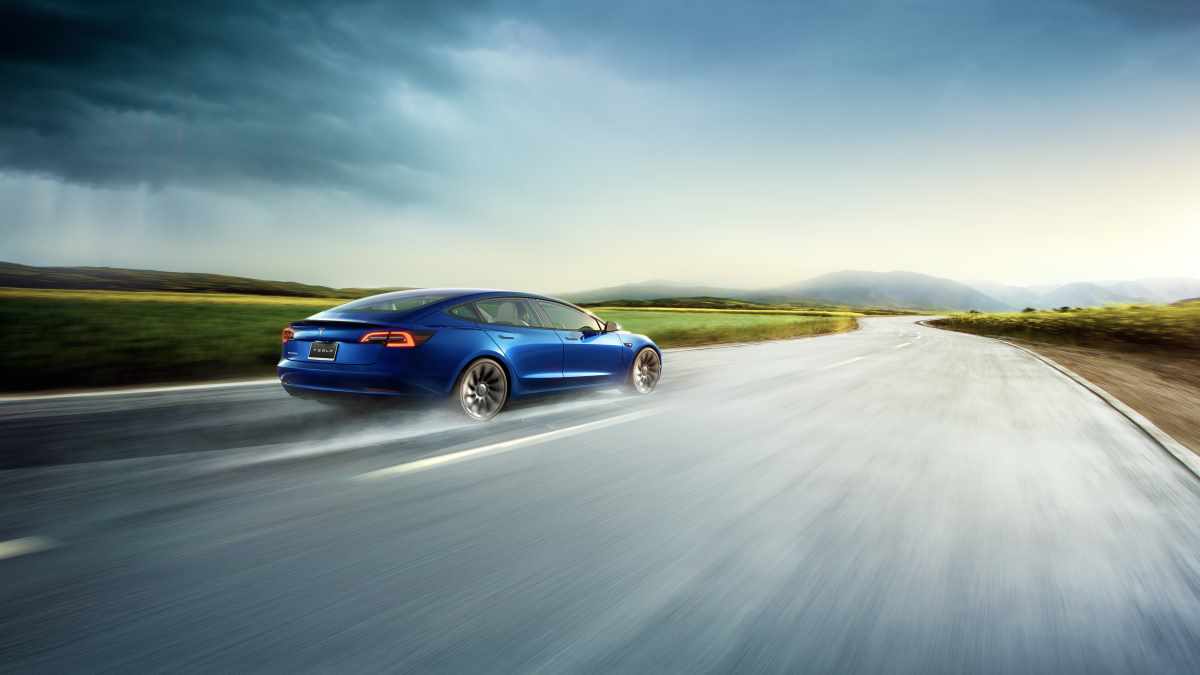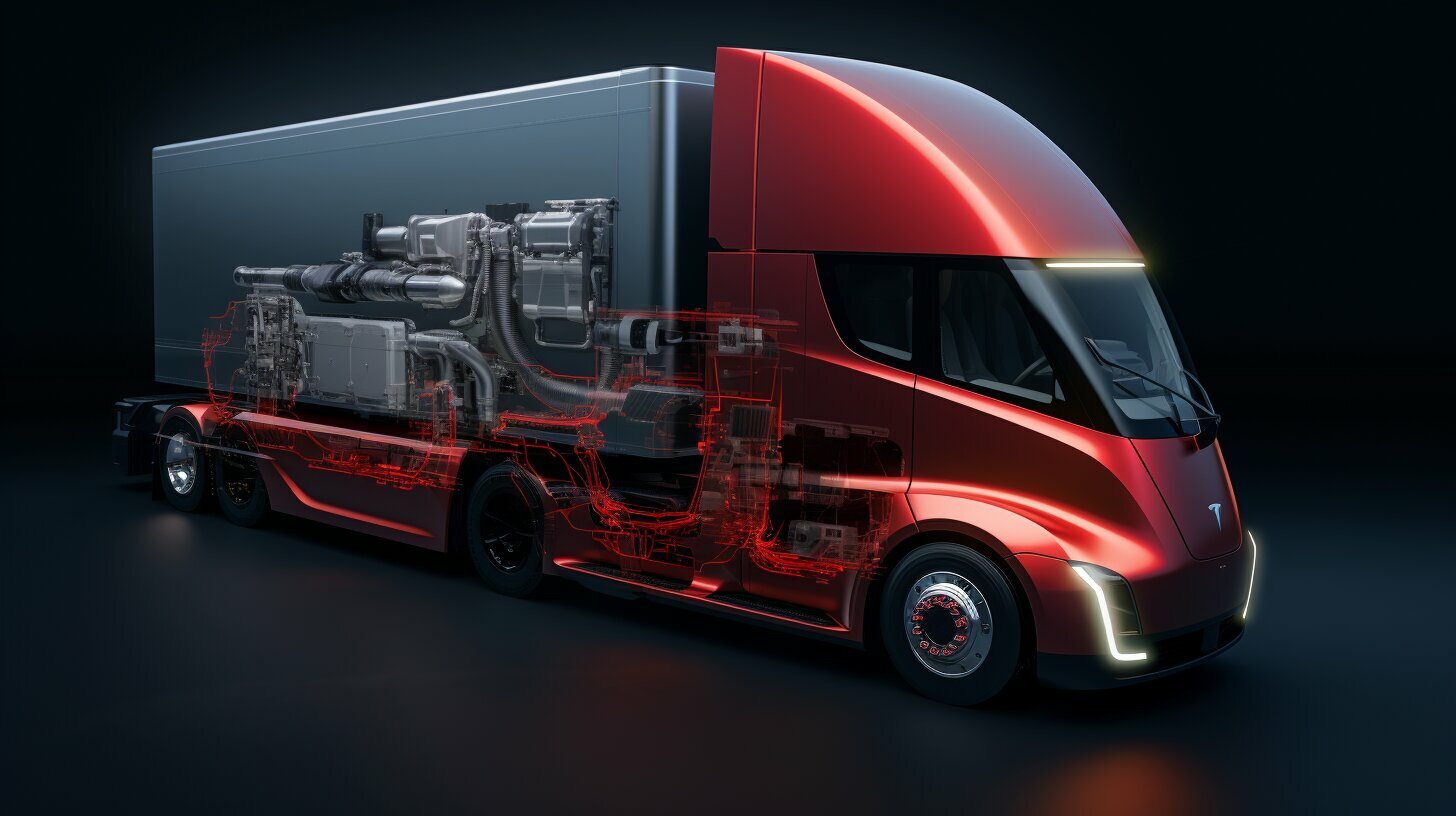Neat Tips About How Much Torque Does A Tesla Have

Torque Talk
1. What Exactly Is Torque, Anyway?
Alright, let's dive right into the heart of the matter: just how much torque does a Tesla have? But before we get bogged down in numbers, its probably a good idea to understand what were even talking about. Torque, in simple terms, is a twisting force that causes rotation. Think of it as the muscle that gets things moving. In a car, it's the force that gets the wheels turning and the car accelerating. It's what pins you back in your seat when you stomp on the accelerator.
Unlike horsepower, which is often misunderstood as the sole measure of a car's performance, torque is more about the immediate responsiveness and pulling power. A car with high torque will feel quick and eager to accelerate from a standstill or at low speeds. It's the grunt, the oomph, the feeling of effortless power. So, next time someone brags about horsepower, remember to ask about the torque figures too!
So why is understanding torque so important? Because it fundamentally shapes how a car feels to drive. A car might have great horsepower for top-end speed, but without good torque, it'll feel sluggish getting there. High torque makes driving more enjoyable, especially in everyday situations like merging onto the highway or overtaking another vehicle. It just makes the whole experience feel more effortless.
Consider it this way: Horsepower is like how fast you can run a marathon. Torque is like how much weight you can lift. Both are impressive, but they serve different purposes. And when it comes to the instant gratification of electric vehicles, torque is where its at! It's what gives them that amazing initial burst of acceleration that can surprise even seasoned car enthusiasts.

Tesla Cybertruck Price In UAE, Images, Specs & Features
Tesla's Torque Numbers
2. Delving into the Specifics
Now, for the numbers you've been waiting for. "How much torque does a Tesla have?" depends heavily on the specific model and configuration. Lets break it down by some popular models. Be warned, these figures can be pretty impressive.
The Tesla Model 3, in its various configurations, offers a range of torque figures. The Rear-Wheel Drive (RWD) versions typically offer around 330 lb-ft of torque. That's already plenty of get-up-and-go for most drivers. The Long Range and Performance models, with their dual-motor all-wheel-drive systems, ramp things up significantly. The Long Range can offer around 420 lb-ft, while the Performance version can unleash a staggering 472 lb-ft. These figures mean incredibly quick acceleration and a truly engaging driving experience.
Moving up the scale, the Tesla Model Y, essentially a taller and more practical version of the Model 3, shares similar torque characteristics. Again, the Long Range and Performance variants boast impressive numbers, comparable to their Model 3 counterparts. You're looking at around 420-472 lb-ft, depending on the specific version. This makes the Model Y a surprisingly quick and capable family vehicle.
Then there's the Tesla Model S and Model X. These are the flagship models, and their torque figures reflect that. The Model S Plaid, in particular, is a torque monster, delivering over 750 lb-ft! This translates to mind-blowing acceleration that can rival supercars. The Model X Plaid isn't far behind, offering similar levels of neck-snapping performance. These vehicles are a testament to the power and potential of electric drivetrains.

Why Electric Motors Excel at Torque Delivery
3. The Magic of Instant Torque
So, why are Teslas and other electric vehicles so good at delivering torque? The answer lies in the fundamental differences between electric motors and internal combustion engines (ICEs). ICEs need to rev up to reach their peak torque, while electric motors produce maximum torque virtually instantaneously. This is because electric motors dont need to go through multiple combustion cycles to deliver power.
In an ICE, the engine has to build up momentum as the pistons fire and crankshaft rotates. This process takes time, which is why you have to wait for the engine to reach a certain RPM before you feel the full force of the torque. In contrast, an electric motor uses magnetic fields to directly generate rotational force. As soon as you apply power, the motor starts spinning and delivering torque. Theres no delay, no lag, just pure, instant power.
This instant torque delivery makes electric vehicles feel incredibly responsive and quick. It's also what gives them their characteristic "zippy" feel. The sensation of instant acceleration is one of the most appealing aspects of driving an electric car. It makes driving more enjoyable, more engaging, and often more surprising than driving a traditional gasoline-powered car.
Furthermore, the electric drivetrain provides for much more precise torque control compared to a conventional engine. This allows for advanced traction control systems that can distribute torque to individual wheels as needed, maximizing grip and stability. This is particularly beneficial in all-wheel-drive Teslas, where the system can dynamically adjust torque distribution to provide optimal performance in various driving conditions.

How Many KWh Does A Tesla Model 3 RWD Have? Torque News
Torque vs. Horsepower
4. Understanding the Key Differences
The age-old debate rages on: torque versus horsepower. While horsepower is a measure of how much work an engine can do over time, torque is the muscle that gets things moving in the first place. It's a common misunderstanding that horsepower is the only thing that matters, but in the real world, torque often plays a more significant role in how a car feels to drive.
Think of it this way: Imagine two weightlifters. One can lift a lighter weight very quickly (high horsepower), while the other can lift a much heavier weight, but a bit slower (high torque). Which one is going to be more useful in a tug-of-war? The one with the high torque, of course. Similarly, a car with high torque will be better at pulling heavy loads, climbing hills, and accelerating quickly from a standstill.
Now, horsepower is still important for top-end speed and sustained performance. A car with high horsepower will be able to maintain high speeds more easily and will generally have a higher top speed. But for everyday driving, torque is often the more noticeable and enjoyable factor. It's what makes the car feel responsive and eager to accelerate at any speed.
In the context of electric vehicles, torque is even more critical. The instant torque delivery of electric motors allows them to accelerate incredibly quickly, often outperforming gasoline-powered cars with much higher horsepower figures. This is why Teslas, despite sometimes having relatively modest horsepower numbers, can still achieve blistering 0-60 mph times. It's all about the torque!

Frequently Asked Questions About Tesla Torque
5. Your Burning Questions Answered
Let's tackle some common questions about Tesla torque. It's a topic that often generates a lot of curiosity, so let's clear up any confusion.
Q: Does increased torque always mean faster acceleration?
A: Generally, yes! Higher torque usually translates to quicker acceleration, especially from a standstill or at low speeds. However, other factors like weight, aerodynamics, and gearing also play a role. But all things being equal, more torque equals faster off-the-line performance.Q: Can I modify my Tesla to increase its torque output?
A: While there aren't traditional "engine" modifications you can do, Tesla occasionally offers over-the-air software updates that can boost performance, including torque output. Also, some aftermarket companies offer performance enhancements, but proceed with caution as these could void your warranty.Q: Why do some EVs have more torque than others?
A: The amount of torque an EV produces depends on several factors, including the size and design of the electric motor, the battery voltage, and the motor control system. Different manufacturers prioritize different performance characteristics, which can lead to variations in torque output.
